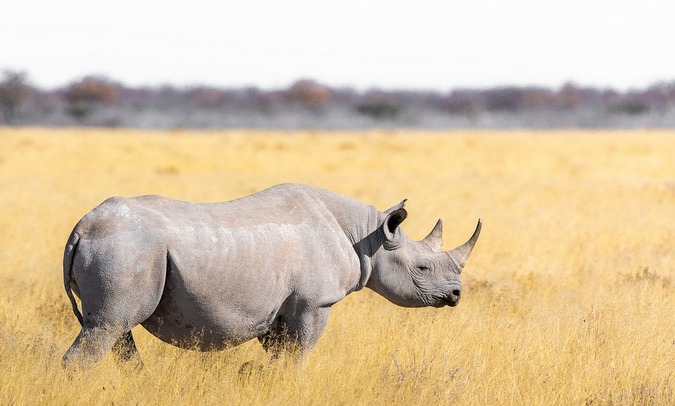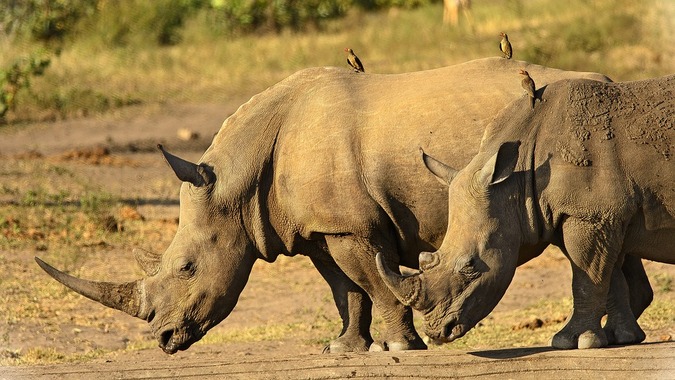
Press release from University of Cape Town (UCT)
The international donor community and governments have invested heavily in fighting illegal wildlife trade, but so far, they haven’t succeeded in ending rhino poaching. New research from UCT shows that for these initiatives to succeed, local communities – many of which live in or near protected areas – need to be involved.
Local communities in rural areas in South Africa tend to be on the periphery of basic service delivery and only a few conservation initiatives partner with or enrol local people in their work. As such, often the only benefits community members can gain from wildlife economies are through poaching.
“During our research, we found that local community members felt that government, conservation authorities and non-governmental organisations valued the lives of wild animals more highly than those of rural black people,” explains Dr Annette Hübschle, the study’s lead author and senior researcher at UCT’s Global Risk Governance Programme.
The study aims to show how to change the incentive structures for members of local communities so that they participate in legal economies rather than illegal wildlife trafficking. Some of the case studies in the report illustrate how former poachers and wildlife traffickers have turned into wildlife guardians.
“In such instances, we have documented examples where poaching numbers were lower than in other protected areas where local communities are excluded from beneficiation, ownership and management,” says Hübschle.
Although the study focused on rhino poaching, its findings and recommendations are applicable to all forms of wildlife trafficking. The pangolin, for example, is now considered the most trafficked animal in the world, and cycads the most threatened plant species.

Serving people or rhinos
While rhinos may be protected by the South African National Defence Force, looked after by wildlife veterinarians and given supplementary food and water by conservation authorities, some of the communities living nearby do not have a permanent police presence, basic healthcare facilities, schools or shops.
“The rhino has its own doctor, its own policeman, its own helicopter, its own land and there are rangers to protect it,” says a local community member from the greater Kruger National Park, South Africa. “We don’t have these things. If the rhino goes extinct tomorrow, maybe we can finally get basic services.”
The report shows that many local communities shield poachers and wildlife criminals from law-enforcement agencies. It also describes the deep rifts and conflicts between actors in the conservation field, most notably, local communities and conservation management authorities.
By giving local communities a voice, the report aims to contribute to a deeper understanding of the lived experiences, systematic exploitation and questionable assumptions of the dominant conservation regime in South Africa.

Empowering communities to conserve
Since the most recent escalation in rhino poaching, most conservation funding has been diverted to anti-poaching initiatives and to the administration costs of projects by international non-governmental organisations and conservation authorities.
The international community is focusing on militarising anti-poaching initiatives, calling for more helicopter gunships, drones and boots on the ground. This has – unintentionally – impeded community-orientated conservation and broad-based economic transformation.
There are, however, limits to what conservation authorities can do to uplift communities that live near national parks. Hübschle highlights the need to “explore other forms of rural employment, resource sharing and income generation beyond hunting, anti-poaching and tourism.”
She recommends that the needs of conservation initiatives be provided through community empowerment projects that contribute to teaching community members the skills to develop and maintain their own projects. Furthermore, women should be involved in mediating positive conservation outcomes.
“Women command considerable power and influence in the communities in question,” Hübschle explains. “In light of the patriarchal structure of many rural African communities, this suggestion may appear counter-intuitive. However, there are countless examples that demonstrate that women can exert a strong influence on conservation outcomes.”
Full report: Annette Hübschle; Clifford Shearing (2018). Ending wildlife trafficking – Local communities as change agents. The Global Initiative. http://globalinitiative.net/wp-content/uploads/2018/08/TGIATOC-Wildlife-Trafficking-Report-WEB-4.pdf
To comment on this story: Login (or sign up) to our app here - it's a troll-free safe place 🙂.![]()






